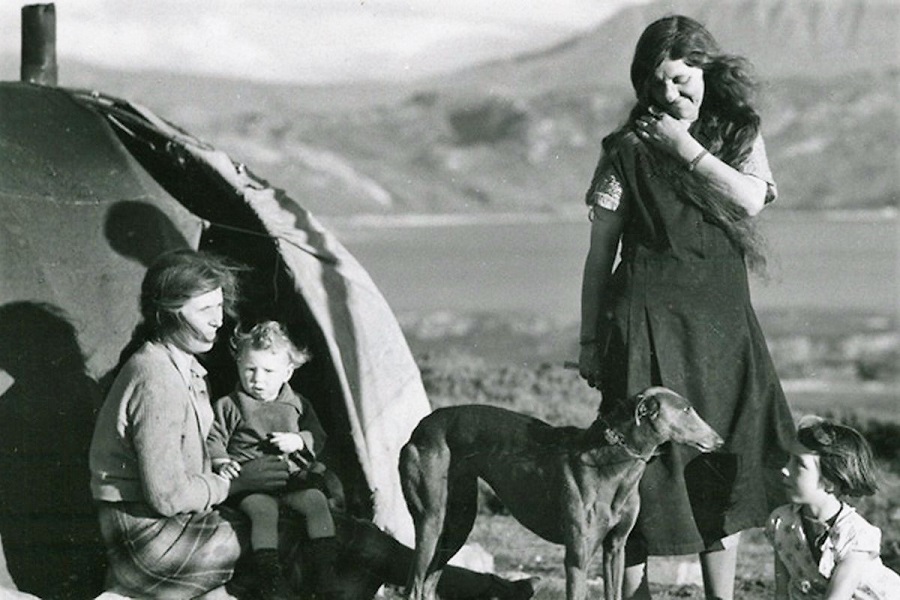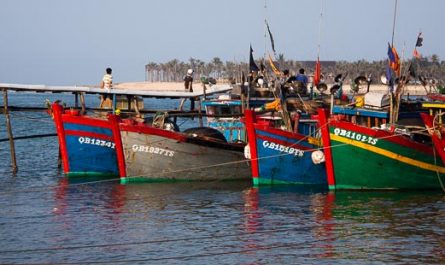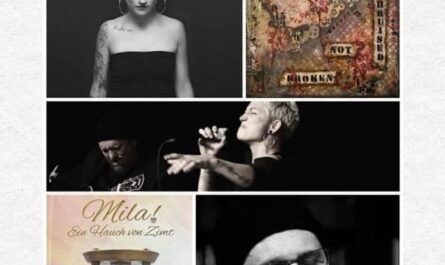Travelling people, travellers, itinerants, wanderers, nomads: all are examples of a social culture on
the move. Once a dynamic culture, a living culture: whether Gypsies, Zigeuner, Tziganys, Bohemiens
or Gitanos, they were often discriminated against, sidelined. As outsiders, they were often
persecuted.
The Romanies – or Gypsies – are not indigenous to Britain. When they first appeared in Britain, they
were believed to be Egyptians (!), the word becoming shortened to ‘Gyptian’, and then eventually to
‘Gypsy’…. The term now wrongly applied to almost anyone following an itinerant lifestyle.
In our native Scotland, we have had such travellers since the 12thc. at least. They were usually good at
working with tin, producing pots and pans, selling them, at repairing metal tools, sharpening knives.
They also weaved baskets. They lived on the land, erecting tents made from bent hazel branches as
ribs and covered with tarpaulin. They used carts to move on. Some even had horse-drawn caravans.
Here’s a poem by Violet Jacobs entitled ‘Last o’ the Tinkler’, in Scots:
“Lay me in yon place, lad,
The gloamin’s (evening dark) thick wi’ nicht; (night)
I canna see yer face, lad,
Fo my een’s (own’s) no richt (right).
But it’s owre late for leein’ (lying)
(An’ I ken (know) fine I’m deein’ (dying),
Like an auld craw fleein’
Tae the last o’ the licht.
….
Ye’ll rise tae meet the sun, lad,
And baith (both) be trayv’lin’ west,
But me that’s auld an’ done, lad,
I’ll bide (wait) an’ tak my rest;
For the grey heid (head) is bendin’
And the auld shune’s (soon is) needin’ mendin’,
But the trayv’lin’s near its endin’, An’ the end’s aye (still) the best.”
Here in Tyrol we have also had a socially marginalised, discriminated against and even persecuted
folk-group: the Jenisch – a few hundred or even several hundred of them. In Europe as a whole there
are thought to be over half a million.
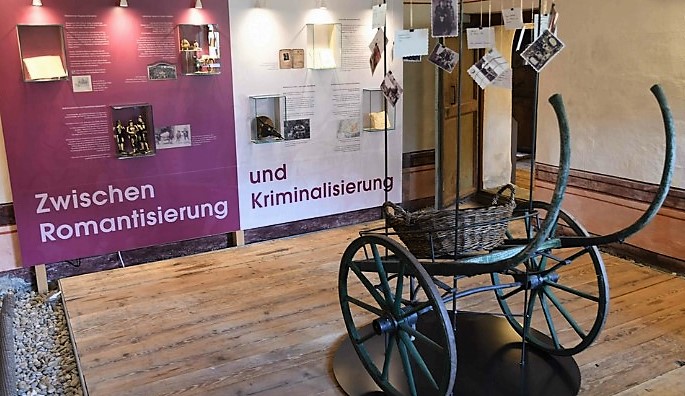
.
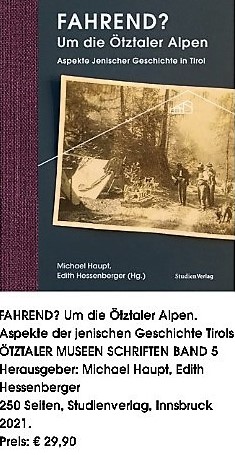
The Tiroler Tageszeitung carried an interesting article about them on January 10 this year, while the book edited by Michael Haupt and Edith Hessenberger in 2021 (‘Fahrend? Um die Oeztaler Alpen:
Aspekte jenischer Geschichte in Tirol‘, published by Studien Verlag) is an invaluable resource. Only recently have their language and culture been researched and recognised.
ccc
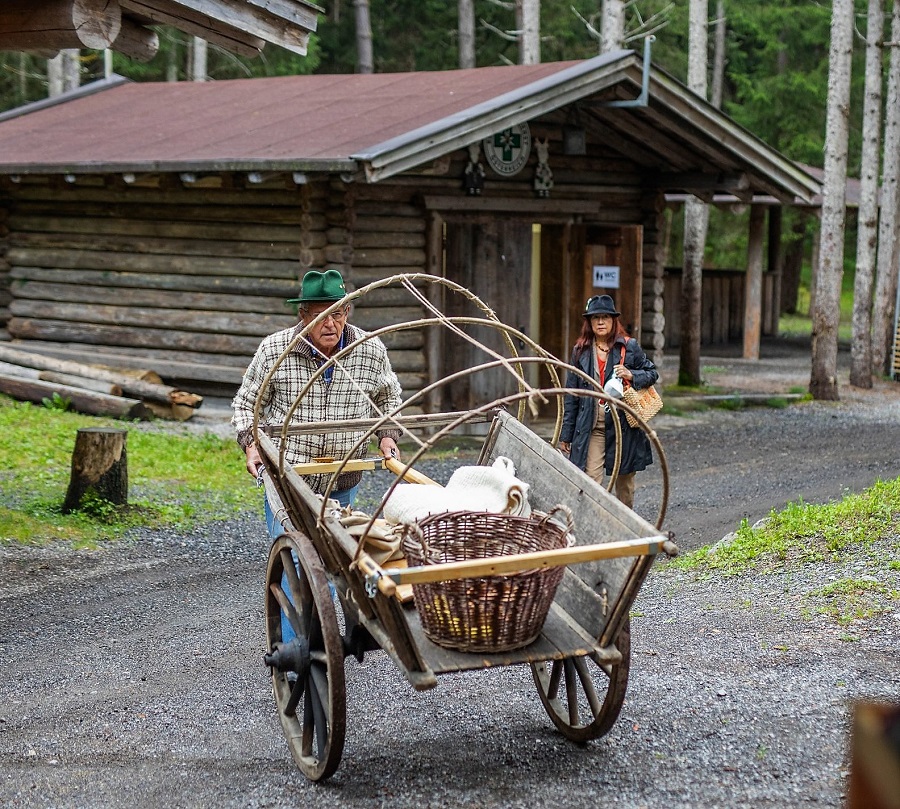
Here are two poems by Sieglinde Schauer-Glatz, in Jenisch:
„Novus tibern (say nothing)
Novus fraggln (ask nothing)
und verstockern (and hide away)
der jenische schummelt sich (the Jenisch is ashamed)
er ist geschmälert (he is reduced)/
schuntig a lingger schuri (is dirty, an enemy alien)
a gschutzbacher (a madman)
das jenische pegert (the Jenisch dies)
und andere schein (and tomorrow)
sein die jenischen rangerlen – gadsche (the Jenisch kids are no longer Jenisch).“
“Biberisch und turmisch von der Walz (cold and tired from walking)
Linsest am glosen Funk (you stare by the glowing fire)
In die geschwärzte Negert novus Blinker, (into the dark night without stars)
novus Schinaggl, novus Lovi (no work, no money)
Der Kohldampf ist grandig (hunger is great)
Ulmen pfliagln (people go begging)
Verbascht und verzinkert (driven out – betrayed)
Das ist Schallerei von letzt Schein? (That’s music from yesterday?)
Der Schuberler stolft (But the spirit will return).”
Scotland’s tinkers, Tyrol’s Jenisch: any difference?
As early as 1573 the Tiroler Landesordnung classified such itinerants in Tyrol as Bettler, Zigeuner and …. Schotten!

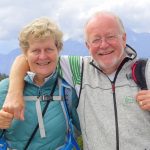 von
von 